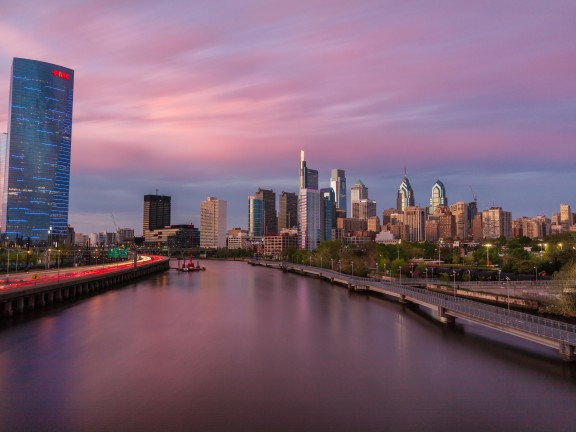Pew Releases Philadelphia State of the City Report for 2025

Pew Charitable Trusts released its annual report on the state of Philadelphia that compiles and analyzes data in the following areas: education, government, health, housing, jobs and the economy, public safety, and transportation. The report is relevant to Pathways Housing Wellness Corporation’s health and housing work as it highlights the specific needs that PHWC aims to address. We’ve pulled out a couple data points from the report that are relevant to our development work, and outlined how we’re going to incorporate this information into our work moving forward.
Cost-Burden
The Data: More than half (51.7%) of Philadelphians are cost-burdened, meaning they spend more than 30% of their income on housing. This is up from 40% in 2018.
What PHWC is doing: Developing housing that is subsidized by Faircloth to RAD vouchers, meaning no tenants in our developments will pay more than 30% of their income on rent, even if their income is $0.
Vacant Land
The Data: At the start of 2025, there were roughly 21,000 vacant properties in Philadelphia. Areas in North Philadelphia as well as areas in West Philadelphia had the highest share of the city’s vacant properties.
What PHWC is doing: PHWC’s goal is to infill affordable housing, meaning we aim to develop vacant properties and fill in blighted blocks. Our first development project, the 17th Street Community Corridor, will fill in vacant properties in the 19121-zip code, one of the zip codes identified in the report as having over 15% vacant lots. Our goal is to make these communities healthier and safer through infill development.
Homelessness
The Data: More Philadelphians experienced homelessness than ever before, with a 10% increase from the previous year.
What PHWC is doing: 30% of PHWC’s developments are reserved for those who were formerly homeless. All residents will have access to Pathways to Housing PA’s suite of supportive services to address behavioral and physical health issues.
Life Expectancy
The Data: While the overall life expectancy of Philadelphians went up to 76.2 years, there remained a significant disparity by race and ethnicity. In 19121, the zip code where PHWC’s first development will be built, the life expectancy was closer to 62-65 years for men and 72-75 years for women – the lowest in the city.
What PHWC is doing: Housing is a social determinant of health, and through affordable housing development, PHWC aims to improve these health statistics in the neighborhoods in which we develop.